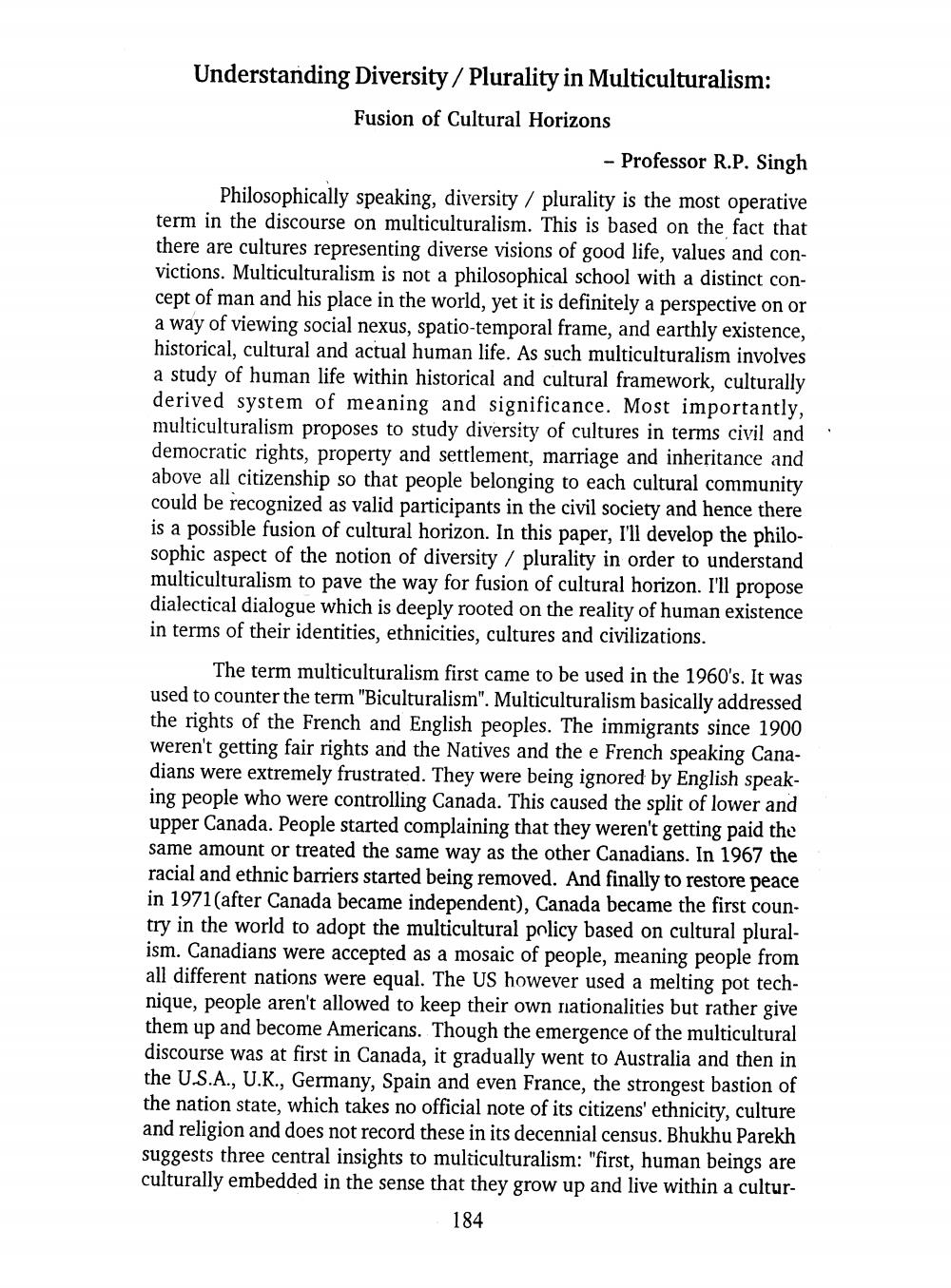________________
Understanding Diversity / Plurality in Multiculturalism:
Fusion of Cultural Horizons
- Professor R.P. Singh Philosophically speaking, diversity / plurality is the most operative term in the discourse on multiculturalism. This is based on the fact that there are cultures representing diverse visions of good life, values and convictions. Multiculturalism is not a philosophical school with a distinct concept of man and his place in the world, yet it is definitely a perspective on or a way of viewing social nexus, spatio-temporal frame, and earthly existence, historical, cultural and actual human life. As such multiculturalism involves a study of human life within historical and cultural framework, culturally derived system of meaning and significance. Most importantly, multiculturalism proposes to study diversity of cultures in terms civil and democratic rights, property and settlement, marriage and inheritance and above all citizenship so that people belonging to each cultural community could be recognized as valid participants in the civil society and hence there is a possible fusion of cultural horizon. In this paper, I'll develop the philosophic aspect of the notion of diversity / plurality in order to understand multiculturalism to pave the way for fusion of cultural horizon. I'll propose dialectical dialogue which is deeply rooted on the reality of human existence in terms of their identities, ethnicities, cultures and civilizations.
The term multiculturalism first came to be used in the 1960's. It was used to counter the term "Biculturalism". Multiculturalism basically addressed the rights of the French and English peoples. The immigrants since 1900 weren't getting fair rights and the Natives and the e French speaking Canadians were extremely frustrated. They were being ignored by English speaking people who were controlling Canada. This caused the split of lower and upper Canada. People started complaining that they weren't getting paid the same amount or treated the same way as the other Canadians. In 1967 the racial and ethnic barriers started being removed. And finally to restore peace in 1971(after Canada became independent), Canada became the first country in the world to adopt the multicultural policy based on cultural pluralism. Canadians were accepted as a mosaic of people, meaning people from all different nations were equal. The US however used a melting pot technique, people aren't allowed to keep their own nationalities but rather give them up and become Americans. Though the emergence of the multicultural discourse was at first in Canada, it gradually went to Australia and then in the U.S.A., U.K., Germany, Spain and even France, the strongest bastion of the nation state, which takes no official note of its citizens' ethnicity, culture and religion and does not record these in its decennial census. Bhukhu Parekh suggests three central insights to multiculturalism: "first, human beings are culturally embedded in the sense that they grow up and live within a cultur
184




